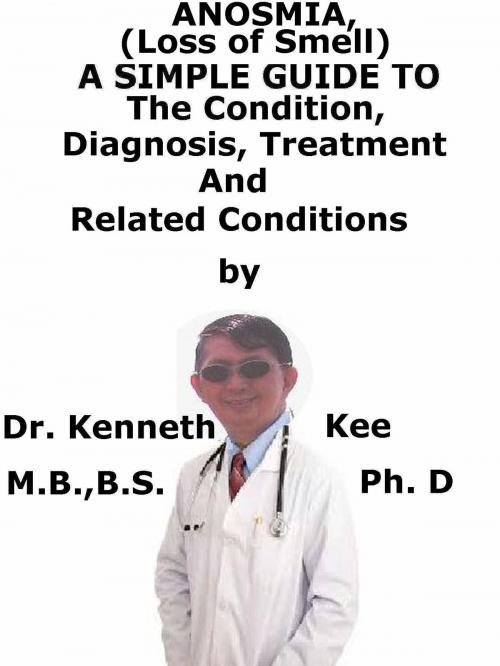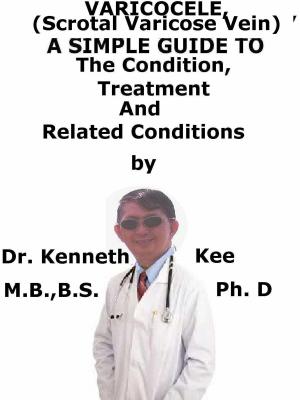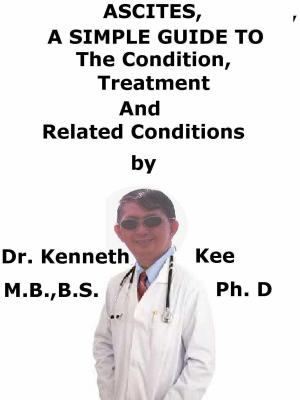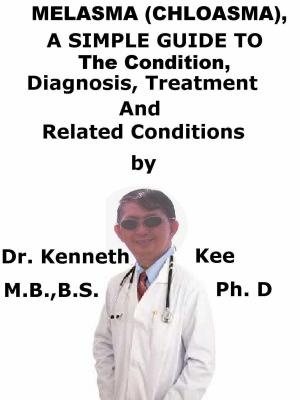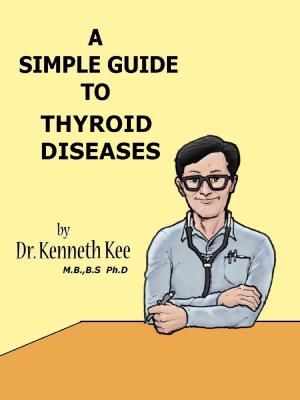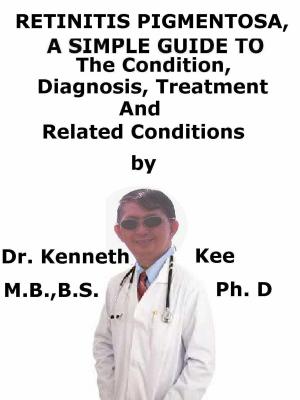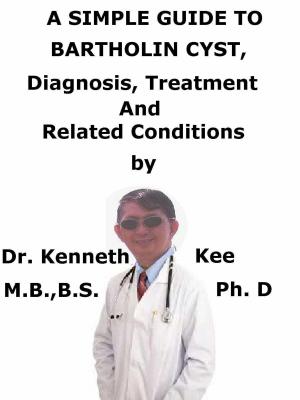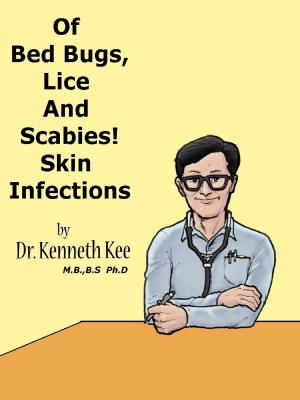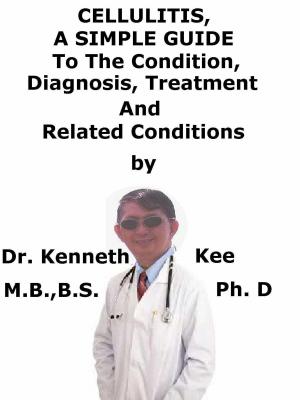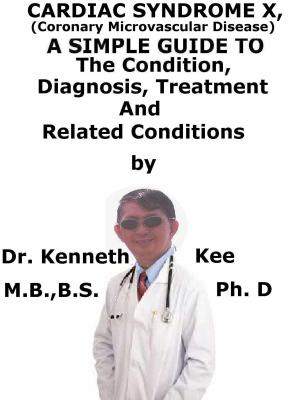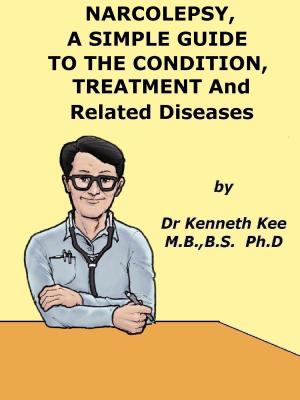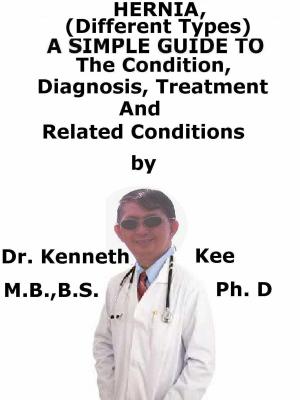Anosmia, (Loss of Smell) A Simple Guide To The Condition, Diagnosis, Treatment And Related Conditions
Nonfiction, Health & Well Being, Medical, Specialties, Otorhinolaryngology| Author: | Kenneth Kee | ISBN: | 9781370028078 |
| Publisher: | Kenneth Kee | Publication: | September 19, 2017 |
| Imprint: | Smashwords Edition | Language: | English |
| Author: | Kenneth Kee |
| ISBN: | 9781370028078 |
| Publisher: | Kenneth Kee |
| Publication: | September 19, 2017 |
| Imprint: | Smashwords Edition |
| Language: | English |
Anosmia is the inability to perceive smell (medically termed olfaction).
When the loss of smell is not complete, the disorder is called hyposmia.
Some people are anosmic for one specific odor; this is called “specific anosmia”.
Specific anosmia is normally genetically based.
Most patients with anosmia complain of losing the sense of taste (ageusia) and of not enjoying food.
They can sense salty, sweet, sour, and bitter substances but flavor bias which is a function of smell is not possible.
Smell is sensed by a special lining in the posterior portion of the nose called the olfactory epithelium.
Signals are carried from this lining via nerves to the brain.
Any factors that block the smell from reaching this lining or induce injury may cause anosmia.
Injury to nerves that bring the signals or the part of the brain that senses smell can lead to anosmia.
Anosmia may be part of normal aging.
The most frequent causes of anosmia are respiratory infections, sinusitis, and head trauma.
Anosmia or losing the ability to smell is quite a frequent problem which a patient has at one point or the other.
Anosmia can be incomplete or complete but it is very infrequent that someone has total loss of the capability to smell.
Occasionally Anosmia or loss of smell can also be congenital with a patient having inability to smell things right from birth.
Anosmia or loss of smell can be transient or permanent dependent on the cause of it.
Anosmia or loss of smell does not really suggest a serious medical condition but if permanent has an impaired sense of smell then it does not allow him or her to enjoy the things which normal people are fond of the smell of a good food, smell of fresh flowers and the like.
This may make the person with permanent anosmia depressed.
The patient may soon lose interest in eating foods as he or she is not able to enjoy food that normal people do due to Anosmia or loss of smell which may then result in unintentional weight loss.
Causes:
Common Colds
Irritation of innermost lining of the Nose
Nasal Passage Obstruction
Brain or Nerve Damage
Aging
Permanent Causes:
Congenital
Nerve Damage
Transient Causes:
Viral or bacterial nose infection
Nasal allergies
Symptoms:
A patient with anosmia has:
1. Loss of Smell
2. Loss of Taste
3. Loss of appetite
4. Loss of weight
Diagnosis:
The diagnosis of anosmia can be done by taking a detailed history, examining the patient and carrying out some tests.
1. Tests like CT scan and MRI
2. Nasal endoscopy
3. Olfactory nerve testing
4. X-rays of the skull
The treatment of anosmia or loss of smell depends on the underlying cause of the disorder.
People who are born with anosmia or without sense of smell cannot be cured as this disorder is mostly permanent in these people.
Some of the treatment methods that are used for managing anosmia are nasal wash, use of a nasal spray, antihistamines, and steroids
Steroids are helpful for treating rhinitis or sinusitis which when treated can improve Anosmia or help get back the loss of smell.
There are no treatments for anosmia itself even though the specific causes may be treated.
The treatment of the cause of the problem may correct loss of the sense of smell:
1. Antihistamines (if the disorder is linked to allergy)
2. Changes in medicine
3. Surgery to correct blockages
Nasal polyps - removal of polyps
Sinus blockage - endoscopic sinus surgery
Treatment of other disorders such as nasal congestion:
1. Nasal decongestants
2. If the patient permanently loses the sense of smell, the patient can change the diet to have highly seasoned foods that stimulate the taste sensations that the patient still have.
3. For loss of smell due to aging, there is no treatment.
TABLE OF CONTENT
Introduction
Chapter 1 Anosmia
Chapter 2 Causes
Chapter 3 Symptoms
Chapter 4 Diagnosis
Chapter 5 Treatment
Chapter 6 Prognosis
Chapter 7 Allergic Rhinitis
Chapter 8 Rhinosinusitis
Epilogue
Anosmia is the inability to perceive smell (medically termed olfaction).
When the loss of smell is not complete, the disorder is called hyposmia.
Some people are anosmic for one specific odor; this is called “specific anosmia”.
Specific anosmia is normally genetically based.
Most patients with anosmia complain of losing the sense of taste (ageusia) and of not enjoying food.
They can sense salty, sweet, sour, and bitter substances but flavor bias which is a function of smell is not possible.
Smell is sensed by a special lining in the posterior portion of the nose called the olfactory epithelium.
Signals are carried from this lining via nerves to the brain.
Any factors that block the smell from reaching this lining or induce injury may cause anosmia.
Injury to nerves that bring the signals or the part of the brain that senses smell can lead to anosmia.
Anosmia may be part of normal aging.
The most frequent causes of anosmia are respiratory infections, sinusitis, and head trauma.
Anosmia or losing the ability to smell is quite a frequent problem which a patient has at one point or the other.
Anosmia can be incomplete or complete but it is very infrequent that someone has total loss of the capability to smell.
Occasionally Anosmia or loss of smell can also be congenital with a patient having inability to smell things right from birth.
Anosmia or loss of smell can be transient or permanent dependent on the cause of it.
Anosmia or loss of smell does not really suggest a serious medical condition but if permanent has an impaired sense of smell then it does not allow him or her to enjoy the things which normal people are fond of the smell of a good food, smell of fresh flowers and the like.
This may make the person with permanent anosmia depressed.
The patient may soon lose interest in eating foods as he or she is not able to enjoy food that normal people do due to Anosmia or loss of smell which may then result in unintentional weight loss.
Causes:
Common Colds
Irritation of innermost lining of the Nose
Nasal Passage Obstruction
Brain or Nerve Damage
Aging
Permanent Causes:
Congenital
Nerve Damage
Transient Causes:
Viral or bacterial nose infection
Nasal allergies
Symptoms:
A patient with anosmia has:
1. Loss of Smell
2. Loss of Taste
3. Loss of appetite
4. Loss of weight
Diagnosis:
The diagnosis of anosmia can be done by taking a detailed history, examining the patient and carrying out some tests.
1. Tests like CT scan and MRI
2. Nasal endoscopy
3. Olfactory nerve testing
4. X-rays of the skull
The treatment of anosmia or loss of smell depends on the underlying cause of the disorder.
People who are born with anosmia or without sense of smell cannot be cured as this disorder is mostly permanent in these people.
Some of the treatment methods that are used for managing anosmia are nasal wash, use of a nasal spray, antihistamines, and steroids
Steroids are helpful for treating rhinitis or sinusitis which when treated can improve Anosmia or help get back the loss of smell.
There are no treatments for anosmia itself even though the specific causes may be treated.
The treatment of the cause of the problem may correct loss of the sense of smell:
1. Antihistamines (if the disorder is linked to allergy)
2. Changes in medicine
3. Surgery to correct blockages
Nasal polyps - removal of polyps
Sinus blockage - endoscopic sinus surgery
Treatment of other disorders such as nasal congestion:
1. Nasal decongestants
2. If the patient permanently loses the sense of smell, the patient can change the diet to have highly seasoned foods that stimulate the taste sensations that the patient still have.
3. For loss of smell due to aging, there is no treatment.
TABLE OF CONTENT
Introduction
Chapter 1 Anosmia
Chapter 2 Causes
Chapter 3 Symptoms
Chapter 4 Diagnosis
Chapter 5 Treatment
Chapter 6 Prognosis
Chapter 7 Allergic Rhinitis
Chapter 8 Rhinosinusitis
Epilogue
